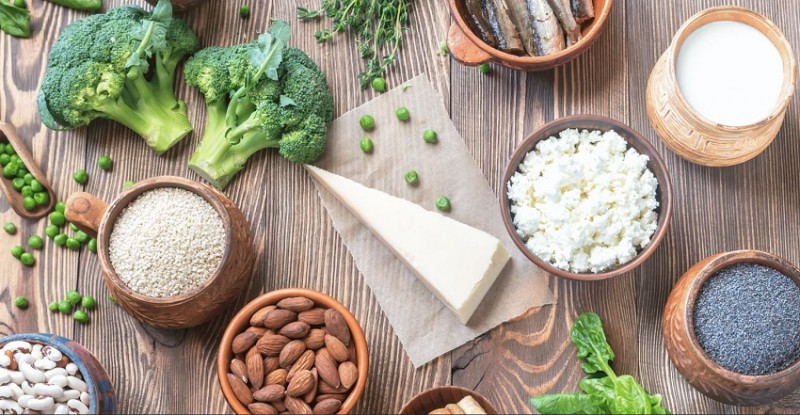
Calcium is a vital mineral that plays a crucial role in maintaining strong bones and teeth, muscle function, and nerve transmission. While dairy products are commonly known for their high calcium content, many vegetarians may need alternative sources to meet their daily calcium requirements. Fortunately, there are several plant-based foods rich in calcium that can help treat deficiency quickly. Here’s a look at eight vegetarian foods that are excellent sources of calcium and how they work to boost your calcium levels.
1. Milk (Plant-Based Options)
While traditional dairy milk is a well-known source of calcium, plant-based milk alternatives like almond, soy, and oat milk are also fortified with calcium. These plant-based milks are not only a great option for those who are lactose intolerant or vegan but also provide a significant amount of calcium. Fortified plant-based milks can often match or even exceed the calcium content found in cow’s milk, helping to prevent and address deficiencies.
2. Almonds
Almonds are a calcium-rich nut that can significantly contribute to your daily intake. A handful of almonds (about 1 ounce) provides approximately 76 milligrams of calcium. Almonds also offer other beneficial nutrients like magnesium, which works alongside calcium to support bone health. Snacking on almonds or adding them to your meals can help you boost your calcium levels efficiently.
3. Chia Seeds
Chia seeds are a powerhouse of nutrients, including calcium. Just two tablespoons of chia seeds contain around 179 milligrams of calcium, making them an excellent addition to your diet. These tiny seeds are also rich in omega-3 fatty acids, fiber, and protein, contributing to overall health and well-being. Adding chia seeds to smoothies, yogurt, or oatmeal can help increase your calcium intake.
4. Sesame Seeds
Sesame seeds are another fantastic vegetarian source of calcium. They contain about 280 milligrams of calcium per two tablespoons, making them one of the highest plant-based sources of this essential mineral. Sesame seeds also provide magnesium and zinc, which are important for bone health. You can sprinkle sesame seeds on salads, stir-fries, or incorporate them into baked goods.
5. Kale
Kale is a nutrient-dense leafy green that provides approximately 90 milligrams of calcium per one-cup serving (cooked). In addition to being a good source of calcium, kale is rich in vitamins A, C, and K, which support overall health. Incorporating kale into your diet through salads, soups, or smoothies can help address calcium deficiency while providing additional health benefits.
6. Broccoli
Broccoli is a versatile vegetable that offers about 60 milligrams of calcium per cup (cooked). It’s also packed with vitamins C and K, as well as fiber and antioxidants. Regular consumption of broccoli can help support bone health and enhance your overall nutrient intake. Adding broccoli to your meals in stir-fries, soups, or as a side dish can contribute to your calcium needs.
7. Spinach
Spinach is another leafy green that contains calcium, providing approximately 30 milligrams per cup (cooked). It’s also rich in iron, magnesium, and vitamins A and C. While spinach contains oxalates that can inhibit calcium absorption to some extent, consuming it as part of a balanced diet can still contribute to your overall calcium intake. Use spinach in salads, smoothies, or cooked dishes for a nutrient boost.
8. Edamame
Edamame, or young soybeans, are a great source of calcium, providing around 63 milligrams per half-cup serving (cooked). They are also rich in protein, fiber, and various vitamins and minerals. Edamame can be enjoyed as a snack, added to salads, or included in stir-fries, making it a delicious and nutritious way to increase your calcium intake.
Incorporating these eight vegetarian foods into your diet can help you address calcium deficiency effectively. Each of these foods provides a unique combination of calcium and other essential nutrients that support overall health. By including a variety of these options in your daily meals, you can ensure that you’re meeting your calcium needs while enjoying a diverse and balanced diet.
Latest Health Updates: